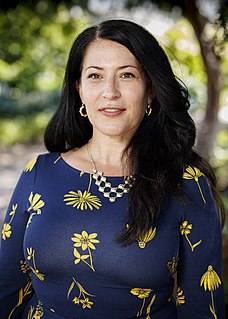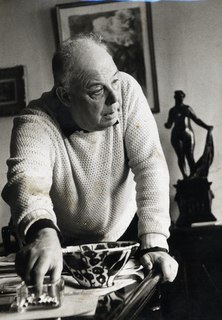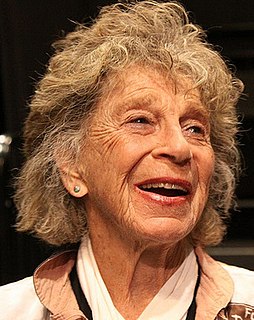A Quote by Edith Wharton
Related Quotes
Poems have always been a place for questions for me. Not answers. And I have a lot of questions these days. One of the reasons I've felt so connected to poetry throughout the years is because it's the only art form that has breath built into it. And I need that breath now. I need that breath so much. So, yes, it is a refuge for me. Absolutely.
To the question, ‘Is the cinema an art?’ my answer is, ‘what does it matter?’... You can make films or you can cultivate a garden. Both have as much claim to being called an art as a poem by Verlaine or a painting by Delacroix… Art is ‘making.’ The art of poetry is the art of making poetry. The art of love is the art of making love... My father never talked to me about art. He could not bear the word.
Aging is like enlightenment at gunpoint. Before I had cancer, I lived my life for my art. After I had cancer, I lived my art for my life. I’ve always said dance is the breath made visible. That covers about everything because once you stop breathing and the breath is no longer visible, you stop moving.
The breath of peace was fanning her glorious brow, her head was bowed a very little forward, and a tress, escaping from its bonds, fell by the side of her pure white temple, and close to her just opened lips; it hung there motionless! no breath disturbed its repose! She slept as an angel might sleep, having accomplished the mission of her God.
The word spirit comes from the Latin word for "breath" - spiritu - and the origin of the word spirituality has to do with breath and life force, the mysteries of the ancients and all this. The word is very suspect in much of the art world - the Western art world. Certainly, spirituality has become divorced from religious.
Art and poetry cannot do without one another. Yet the two words are far from being synonymous. By Art I mean the creative or producing, work-making activity of the human mind. By Poetry I mean, not the particular art which consists in writing verses, but a process both more general and more primary: that intercommunication between the inner being of things and the inner being of the human Self which is a kind of divination (as was realized in ancient times; the Latin vates was both a poet and a diviner). Poetry, in this sense, is the secret life of each and all of the arts.
When Vanity kissed Vanity, a hundred happy Junes ago, he pondered o'er her breathlessly, and, that all men might ever know, he rhymed her eyes with life and death: "Thru Time I'll save my love!" he said. . . yet Beauty vanished with his breath, and, with her lovers, she was dead. . . -Ever his wit and not her eyes, ever his art and not her hair: "Who'd learn a trick in rhyme, be wise and pause before his sonnet there". . . So all my words, however true, might sing you to a thousandth June, and no one ever know that you were Beauty for an afternoon.







































